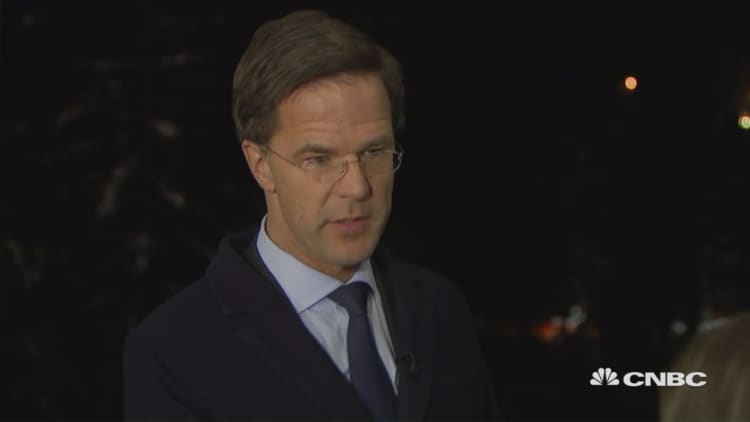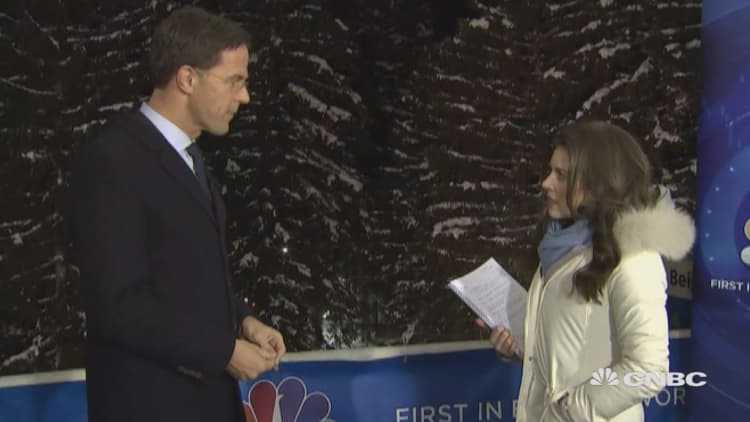
Dutch Prime Minister Mark Rutte gave a downbeat assessment on Thursday of the U.K.'s vote to leave the European Union, saying that the British people chose to become poorer for the sake of controlling immigration.
"This was the choice, the choice always was that when you want economic growth, being part of the biggest market in the world — which the European Union is — to leave that market with all the consequences that entails, there's consequences you have to face up to," he told CNBC at the World Economic Forum in Davos.
"And they wanted to do this because they wanted to control migration."
Rutte said the British public had a clear choice and noted a phone conversation with David Cameron three weeks before the referendum where the former U.K. prime minister described how the debate had steered away from economics and toward immigration.
"The sad thing is that I believe that, at the end of the day, that net immigration into the U.K. will not come down, because also in the future they will need many workers also from Eastern Europe to fill the many vacancies," he said.
Rutte vehemently denied that his comments were scaremongering and his criticisms of Brexit were to aid his own fortunes in the upcoming elections in the Netherlands.
"I'm just stating the facts," he told CNBC.

Dutch voters are heading to the polls in March, the first important election in what will be a key political year in Europe. After the Brexit vote and the election of Donald Trump, the Netherlands will give the first indication of whether populism will shape 2017 too.
The political calendar in 2017 is already quite full. The Netherlands have their general election on March 15. France chooses its next president in May and Germany will vote for the country's chancellery in the fall. Italy is also set for fresh general elections, though the date isn't confirmed yet. Meanwhile, the European Union will be tackling two thorny issues: the U.K.'s Brexit and making sure Greece sticks to the terms of its rescue.
Analysts have been wondering how well populist parties will do in the elections. At the moment, opinion polls are projecting the anti-European Party for Freedom will win the Dutch election. However, given the fragmentation of the Dutch political scene, the party's leader, Geert Wilders, in unlikely to get a majority. A recent poll published by broadcaster NOS suggested that the party appears to have fallen slightly in the public ratings following a strong rise.
— CNBC's Silvia Amaro contributed to this article.






